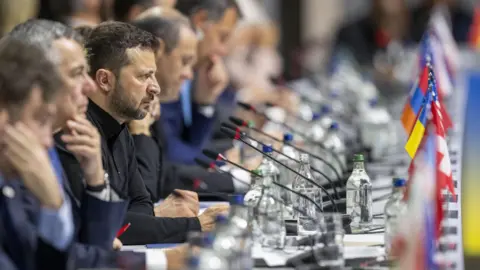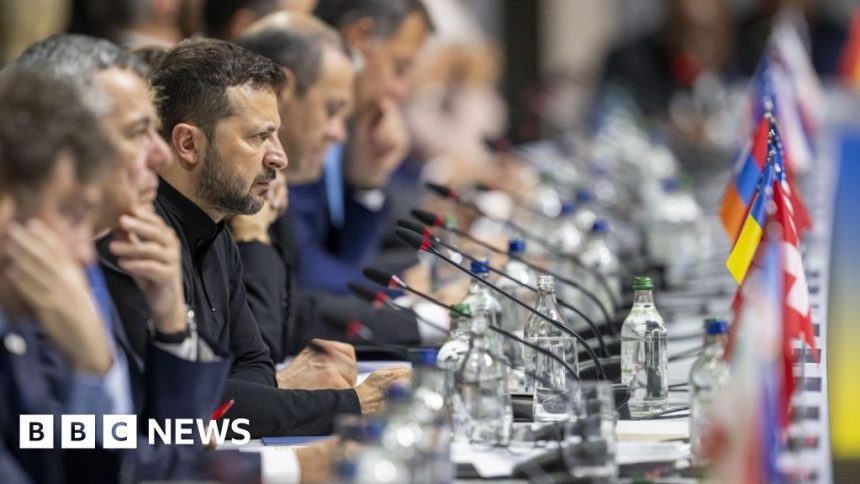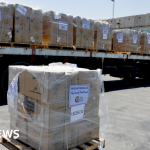Major summit set to back Ukraine’s territorial integrity
 EPA
EPAWorld leaders at the Ukraine peace summit in Switzerland are expected to adopt a declaration reaffirming Kyiv’s territorial integrity.
More than 90 countries and international organisations are attending the summit, aimed at creating the broadest possible backing for a process that could help end the war in Ukraine.
Russia has not been invited, and its biggest backer China is not present, leading some to cast doubt on the summit’s effectiveness.
But the attendees, not all of whom are Ukraine’s closest supporters, hope to reach agreement on issues such as nuclear security and food exports.
They include Saudi Arabia, whose foreign minister has warned that Ukraine will have to make difficult compromises, and Kenya, which spoke out against recent sanctions on Russia.
Nonetheless all the delegations are expected to endorse a final statement condemning Russia’s invasion.
The draft document, seen by Reuters news agency, calls for Ukrainian control to be restored over the Zaporizhzhia nuclear power plant and the country’s ports on the Azov Sea, all currently occupied by Russia.
It also refers to Russia’s invasion as a “war”, a label which Moscow has rejected.
Humanitarian issues such as the return of prisoners and abducted children are also being discussed.
The most contentious topics, like the status of land under Russian occupation, will be left for later.
The organisers of the summit hope to announce a second conference, possibly in Saudi Arabia, to build on what has been achieved.
Ukrainian President Volodymyr Zelensky said on Saturday that the results of the Swiss summit would be communicated to Moscow “so that at the second peace summit we can fix the real end of the war”.
Russia has described the Swiss event as a waste of time, and on Friday President Vladimir Putin said he would agree to a ceasefire if Ukraine withdrew troops from four regions which Russia partially occupies and claims to have annexed.
But a day later Western leaders attending the summit strongly rejected Mr Putin’s proposal.
Italian Prime Minister Giorgia Meloni described it as “propaganda” and UK Prime Minister Rishi Sunak accused Mr Putin of “spinning a phoney narrative about his willingness to negotiate”.







